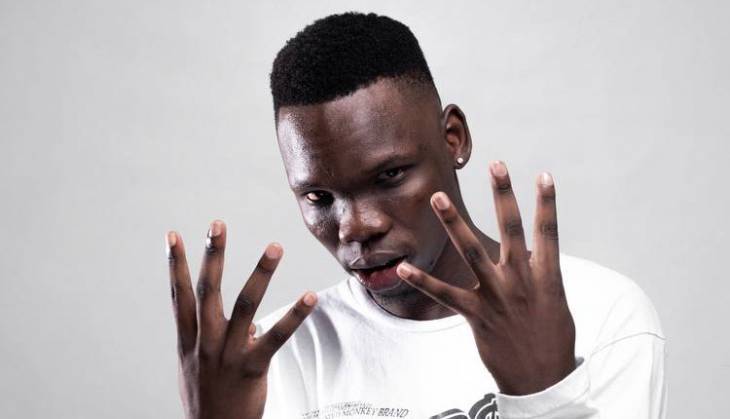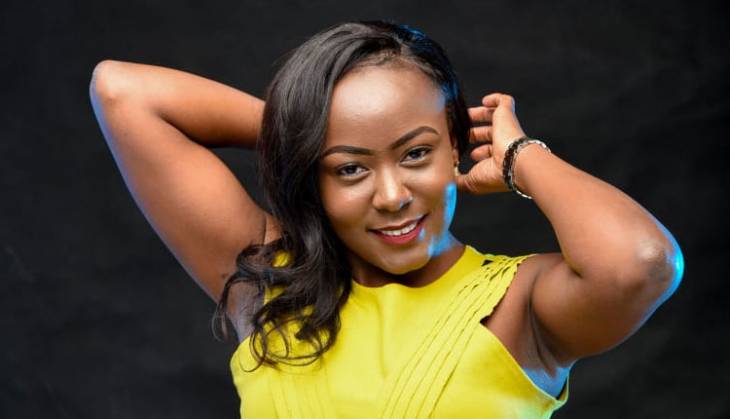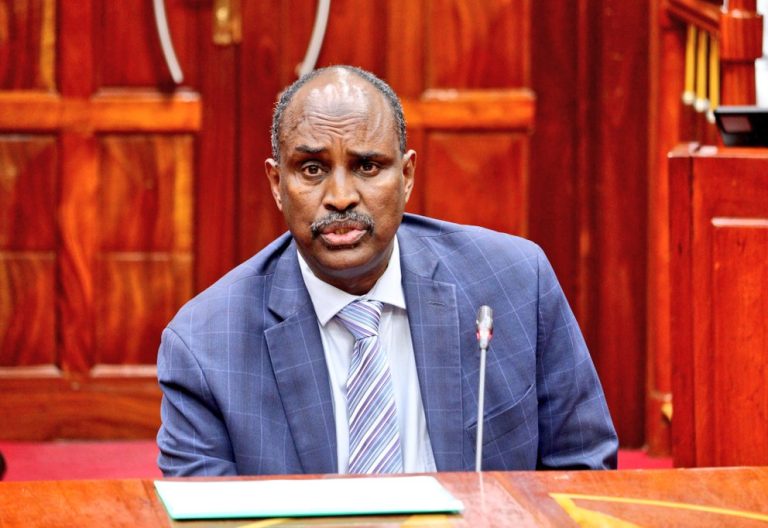Kenya: The entertainers’ haven

Prior to the Covid-19 pandemic, Kenya’s entertainment scene was a beehive of activity, as showbiz figures from across the world jostled for space to perform in 254. And as travel restrictions ease and the airspace reopens, it’s close to ‘business as usual’ all over again, writes Harriet James.
When Jamaican dancehall artiste, Garfield Delano Spence aka Konshens hinted of a tour for the third time in Kenya in October this year, the news was received with great excitement by his fans in the country.
On his Twitter account, the Jamaican singer explained that negotiations were on- going between his management and event organisers.
However, Konshens is not the only musician or entertainer who has evidently fallen in love with Kenya.
In the recent past, big names in the entertainment industry have graced us with their performances, stating that they have great love and admiration for the country and their fans here.
Last weekend, music lovers were in for a big treat, as renowned Nigerian music star Adekunle Gold headlined the Destination Africa Festival, alongside a host of Kenyan artistes and deejays among them Nyashinski, Fena, Otile Brown and G-Money.

For instance, another Jamaican reggae singer Etana was in Kenya recently to launch her new project titled Pamoja (a Kiswahili word meaning together.
Before the performance, the I Rise hitmaker had announced three months prior to her much anticipated 16-track album that features Kenyan artistes such as Wyre the Love Child and Naiboi, as well as Nandy from Tanzania, Wezi (Zambia) and Ghana’s Stonebwoy.
Her visit was the first major one by an international music celebrity since Covid-19 was reported first in the country in March 2020.
Love at first sight
“I saw Kenya’s love in 2012 when I performed while I was expecting my baby. However, in May 2019, it became clear to me that Kenya is my second home.
The turnout was more than I expected and the roar that came with songs such as Weakness In Me, Love Song, I Am Not Afraid, People Talk and others was sometimes so loud that I couldn’t hear myself. I just allowed them to sing.

I performed for two solid hours,” Etana told Jamaican publication Gleaner in a recent interview.
South African rapper, songwriter and producer Sihle Sitholea aka Blxckie toured the country recently as part of his African tour.
His trip to 254 was to meet his fans who have highly contributed to his success in music by consuming his music online.
After gaining immense popularity in the last six months, Blxckie has attracted audiences from all parts of the continent and is taking the time now to connect with fans across Africa.
“The social media has made us go global in that our content is not just consumed by South Africans, but I get fans from all over Africa telling me that they are enjoying what I produce.
That gave me a basis of travelling to meet them,” says the 21-year-old from Durban, who started out as a rapper in her town’s rap group Clout Internet Boys.
Blxckie found himself stuck in Johannesburg during the 21-day lockdown in March 2020 and released plenty of music on SoundCloud where he celebrated one million streams on the app.

His visit was also a chance to collaborate with various Kenyan artistes and producers following his successful release of his debut album B4Now on May 21, 2021, which is currently the top hip-hip album in South Africa.
The 12-track project has earned the number one spot on Apple Music, Spotify, Triller and Audiomack, and has garnered more than one million streams on all the major digital music platforms.
For celebrated Nigerian comedian Samuel Perry alias Brodda Shaggi, his recent visit in the country was mostly to collaborate with Kenyan artistes and comedians.
“Nigeria is not the only place where I make people laugh. Every time I post on YouTube, there are fans in other countries who also comment and love my content.
I felt that at this point, where I have worked to reach out to my other brothers and sisters working in other countries,” he told Spice.
With over 15 million followers on all his social media platforms, Shaggi has been named as one of the most influential sensations in Nigeria and Africa.
The comedian-cum-actor-cum-musician has been featured in movies such as Bling Lagosians, Namaste Wahala, Elevator Baby, and The Razz Guy.

His nominations include The Future Awards Africa Prize For Comedy, The City People Music Award for Comedy Act, and The African Youth Awards for The Most Influential Young African.
“It is my first time here and I feel at this point in my career, it is high time I met with other creatives from Africa and collaborated with them.
Also, it is the right time to expand my reach and create new content,” he explains.
Enthusiastic audience
Terazo New Media lead publicist and co-founder Nonsizi Agnes believes that the wave of interest is as a result of having a large audience in the country.
“Kenya is a very welcoming nation and we are one of those countries that listen to everything.
As a result, this has affected our music, as we tend to borrow a lot from other countries.
This has made international artistes become big here because they have a ready audience for their music,” she says.

The Kenyan space also has people willing to fund the concerts in the entertainment space, a thing that makes Kenya an attractive place to perform in.
“They have a bigger audience demographic and can actually get you the crowds to your event.
Kenyans have a vast musical pallet unlike most African countries hence why it is ripe to attract any genre of artiste and Kenyan fans show real love to artistes.
Kenyan entertainers get chances for collaborations and a chance to measure their musical performance prowess.
The international artistes also desire a good experience and want to be treated to the true Kenyan culture,” says event producer Lily Kwaka.
Radio and TV host Selly Amutabi observes that the international artistes flock the country as there is a ready market for them.
“They simply come in to meet the demand. Kenyans have a great impact on music consumption, when we are on board of something we know how to make noise about it and these artistes know that.
If you have Kenyans in your basket as fans, you have made it in life as an artiste. It’s that simple,” says Selly.
The benefit of their coming is the networking and exchanging of ideas. For instance, platforms such as Coke Studio Africa, with its African base in nairobi, have resulted in a lot of collaborations, partnerships and industry expansion.
“Kenyan artistes have gone to perform in other countries and we have seen collaborations and other commercial deals being struck out these interactions.
I also believe that the international artistes come here to study the market. They may not be known yet, but they invest in studying the markets, and that’s a challenge that I would like to throw to the Kenyan artistes.
However, if your vision is becoming a bigger artiste outside Kenya, then you invest in that,” Nosinzi expounds.
After working with international artistes for some time, Nosinzi has noted their understanding on their value.
“Some are paid better for their performance because they are worth the payment.
This all boils down to the negotiations, and a business person or event organiser looks at all the ways in which they can save costs,” she notes.
In the boardrooms
Nosinzi adds that while the Kenyan artistes are talented, they need to have a strong management team that can negotiate for what they are worth in the boardrooms, noting that there is a mentality that Kenyans only appreciate what is from abroad in the expense of what is available locally. “It’s a mentality that we need to change.
However, it doesn’t matter whether you are from here or abroad, you need to know your worth and justify why you are worth that much.
That’s why international artistes are sometimes paid better because they have a bigger catalogue or they are able to negotiate better,” she observes.
Selly notes, “It is Kenyans who dictate the value of the foreign artistes. They would cough sums of money for foreigner than a Kenyan.
If you are a musician, build yourself in every way and you’ll respectfully earn your big cheque without begging anyone,” she says.
Nosinzi urges corporates that in as much as they support foreign artists, they should also try and support their own.
She says in conclusion: “Industry players should prioritise growing our own. You cannot fly in big names from wherever, book them in the high-end hotels and you cannot do the same for our own here. This has to change if at all we want our artistes to feel valued.”








